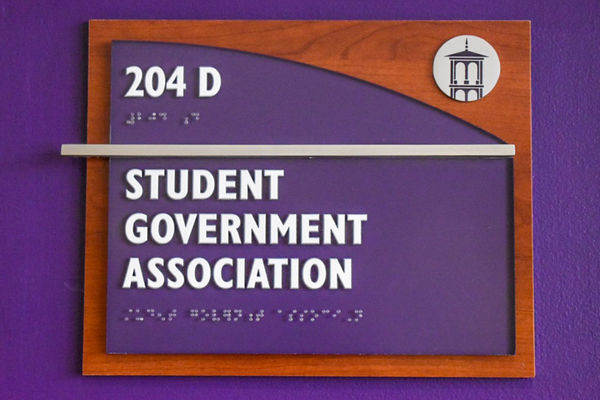On Wednesday, SGA leadership began circulating a petition calling for professors to “create virtual attendance policies that are more accommodating for students with Covid.” While I am sure the student leaders of this effort have good motives, the policy changes they are calling for would provide little short-term benefit and could be actively harmful in the long run. The administration should resist their demands.
The petitioners’ main frustration is that current university policy “[does] not guarantee remote access to academic courses and/or any other offerings during quarantine or isolation.” They go on to say that “Covid aside, allowing students the chance to participate in class virtually … supports their academic success” and that the current policy “must change.”
Let me be clear: if you have COVID-19, you should not go to class, and your absence from class should be excused. Furthermore, some professors could stand to be more accommodating and understanding when working with students who have good reasons to miss class. But that in itself is not sufficient justification for a top-down administrative policy change.
Even as a temporary measure to deal with Omicron, a university-wide requirement to always maintain a Zoom option would be burdensome and annoying for professors and ripe for abuse by students. We all know how awkward hybrid classes can be, and we’ve all known classmates who have logged on, turned the cameras off, and napped through class. In light of the scholarly consensus that there really is no substitute for in-person instruction, the petitioners’ claim that virtual options are “extremely beneficial to all reasons of absence and to all students” is hyperbolic, even when applied to “emergency situations.”
One could argue that pandemic times call for desperate measures. But the pandemic phase of COVID is nearing its end: the disease will eventually become endemic, like the flu. Nationally, Omicron cases seem to have already peaked, signaling that we could be “only a few weeks away from the most encouraging Covid situation since early last summer, before the Delta variant emerged,” according to David Leonhardt of the New York Times. For a vaccinated, boosted community like Furman, that’s especially good news. Class attendance does not present a serious safety risk to students who are vaccinated, boosted, masked, and not feeling sick (which describes nearly every student who walks into a Furman classroom).
The petition’s vague gestures toward a blanket imposition of a remote learning option with no proposed end date are a solution in search of a problem. If remote access were to be extended indefinitely, the Furman of the future could be stuck with many of the cons of remote learning while the pros become less relevant. As a small liberal arts school, a personal, interactive classroom experience is core to who we are — and to the product we are selling to prospective students and faculty. The easier it becomes to go to class remotely, the harder it is to provide this interactive experience and the less valuable and distinctive The Furman Advantage becomes. (Of course, The Furman Advantage should cost less money and be more accessible to students from a broad range of backgrounds, but that’s a topic for another column.)
That is not to say that the petitioners don’t have a point. Students who contract COVID-19 need to know they will be able to stay on top of their school work when in isolation, and some professors could improve at providing those options.
I had a teacher in high school who recorded all her lectures so that athletes who missed class for competition could easily catch up. More professors should take that kind of proactive approach for students who have to miss class. But from where I sit, it seems that a majority of Furman professors are doing a good job navigating the hurdles of Omicron — and the few that lag behind are likely to continue to improve when they hear feedback from frustrated students. The university’s COVID-19 response is working, and brighter spring days are ahead. Capitulating to the demands of the SGA petition would set a bad precedent. The administration shouldn’t take the bait.
